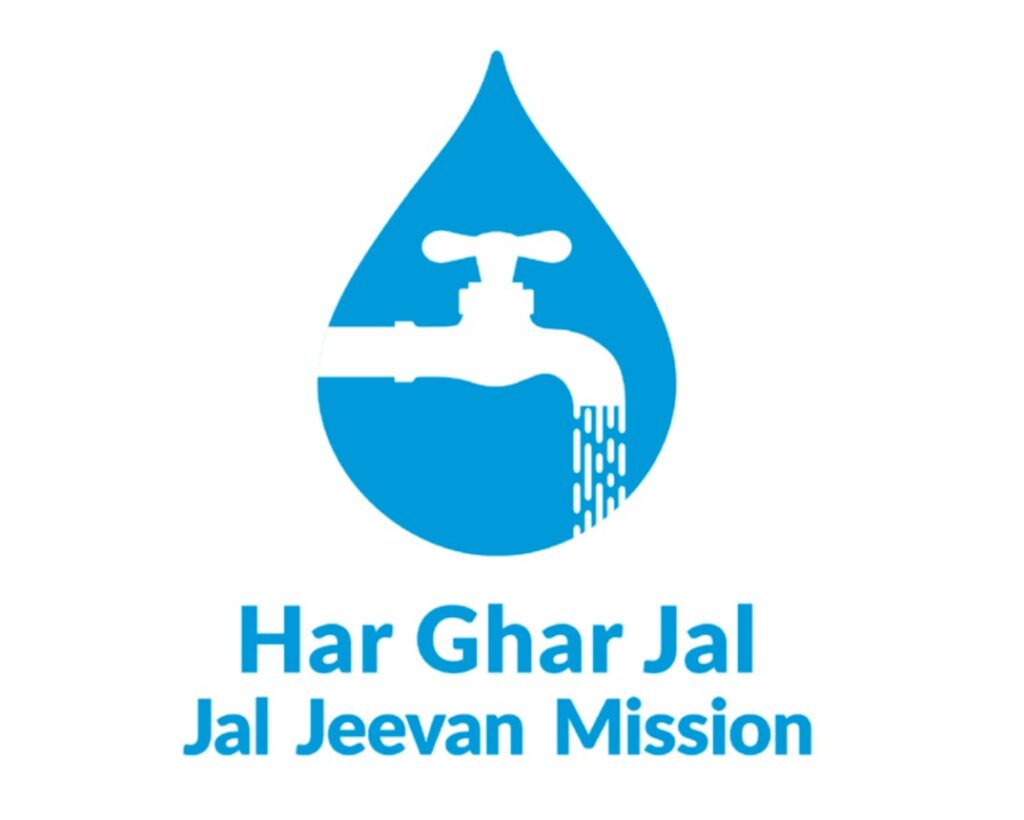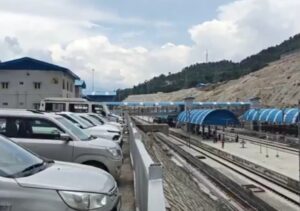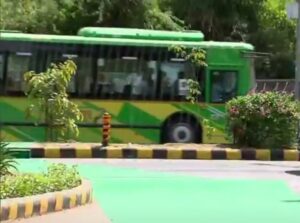National Conference on Jal Jeevan Mission and Swachh Bharat Mission (G) to be held on 16th – 17th February, 2024 in Lucknow, Uttar Pradesh
Union Minister for Jal Shakti, Shri Gajendra Singh Shekhawat to Deliver Key Note Address
Diverse Stakeholders’ Participation expected from across States/ UTs for a Confluence of Ideas and Best Practices to Sustain the Schemes
Key Themes for Deliberation include Innovation, Collaboration, Sustainability, O&M

Department of Drinking Water and Sanitation (DDWS)will be organising a National Conference on Jal Jeevan Mission (JJM) and SMB (G), on 16th and 17th of February 2024, at Lucknow, Uttar Pradesh. The state government from Uttar Pradesh is the partner state for organizing the conference. This national conference is set to bring together a diverse array of stakeholders from across States/ UTs for discussions on ideas, experiences and best practices, with an aim to promote innovation and collaboration among participants, to sustain the success of the two missions.
The Union Minister of Jal Shakti, Shri Gajendra Singh Shekhawat, will deliver the key note address and provide invaluable insights and leadership to the discussions on sustainable WASH practices. Shri Atul Kumar Tiwari, Secretary, Ministry of Skill Development and Entrepreneurship, and Smt. Vini Mahajan, Secretary, Department of Drinking Water and Sanitation, with their collective knowledge and expertise will enrich the discussions and provide comprehensive perspectives on various facets of the WASH sector.
The conference will be pivotal in bringing forth discussions on key issues pertaining to drinking water and sanitation in rural areas, sharing best practices, and outlining the way forward by ensuring collaborative planning and innovation in rural sanitation.A key theme of the conference will be sustainability of schemes, which is crucial for the long-term success of WASH programmes.The event will also cover critical aspects of Operation & Maintenance, special thematic sessions on WASH (Water, Sanitation and Hygiene) and skills i.e. Nal Jal Mitra Programme (NJMP). Participants will engage in panel discussions on thematic topics, share insights and explore solutions to enhance the effectiveness of rural WASH initiatives across the country.
The conference will provide a unique platform for cross-learning through detailed presentations by various States/UTs on the identified thematic areas, demonstrating the best practices implemented across the country.
In addition, the conference will also feature digital displays of innovative solutions, technologies, and best practices in the rural WASH sector. These displays will serve as an interactive experience and will offer the attendees a comprehensive look at the advancements and successes achieved across different States/ UTs including the journey of JJM and SBM(G) at national level.
The Mission Directors of JJM & SBM(G),Special Chief Secretary/ ACS/ Principal Secretaries/ Secretaries, respective Mission Directors/Engineer-in-Chief/Chief Engineer and select DMs/DCs will be joining the conference and shall deliberate on the achievements made, challenges encountered and possible solutions for the problems raised during the course of the conference.
About Jal Jeevan Mission
Jal Jeevan Mission was launched on 15th August 2019. At the time of launch of Jal Jeevan Mission, only 3.23 crore rural households had tap water access. Currently, more than 14 crore rural households (74%) are receiving potable drinking water in adequate quantity, of prescribed quality, on a regular and long-term basis. More than 2 lakh villages are Har Ghar Jal now. Besides, nearly 89% schools and 86% anganwadis also have tap water supply now.
Through diligent Operation and Maintenance (O&M), JJM is making significant strides in the maintenance of water supply systems, ensuring sustainability and long-term success. Multi-skilling initiatives like ‘Nal Jal Mitra’ are also being implemented to empower the rural population by providing them with the skills necessary to manage and oversee various aspects of water supply systems. These initiatives are typically part of broader efforts to improve water accessibility, quality, and sustainability in communities, especially in rural or underserved areas.
With such developments, Jal Jeevan Mission is paving a path for the well-being of the rural masses, ensuring socio-economic growth, gender equality and job opportunities.
This conference represents a crucial step in moving from 74% coverage to 100% goal of providing safe and adequate drinking water through individual household tap connections to all rural households in India, recognising that the integration of these crucial elements is integral to improving health, ensuring environmental sustainability, and enhancing the quality of life for rural communities across India.
About Swachh Bharat Mission (G)
The Swachh Bharat Mission (Grameen) stands as a testament to India’s unparalleled efforts in fostering behavioral change towards sanitation, marking it as the world’s largest initiative of its kind. This transformative program has not only brought about tangible improvements in economic prosperity, environmental sustainability, and public health but has also profoundly impacted social dynamics. Moreover, it has bolstered the safety and dignity of women, a crucial aspect often overlooked in sanitation initiatives.
The remarkable achievement of all villages in Indian states declaring themselves Open Defecation Free (ODF) by 2019 underscores the monumental success of this mission. Furthermore, India has reached yet another significant milestone with over 5.12 Lakh villages, accounting for 87% of the total, being declared ODF Plus under Swachh Bharat Mission Grameen (SBM-G) Phase II. The initiative undertaken have resulted in the declaration of 16 States/UTs as 100% Open Defecation Free plus (ODF Plus), and with 4 States/UTs attaining the ultimate objective of 100% ODF Plus model category. This comprehensive phase extends beyond mere eradication of open defecation, encompassing vital aspects such as greywater management, fecal sludge management, and plastic waste management among others.
By addressing these critical facets of sanitation and environmental hygiene, the initiative transcends its initial objectives, illustrating the government’s and local communities’ unwavering commitment to building a cleaner and healthier nation. Such milestones not only symbolize monumental progress but also serve as a beacon of hope, inspiring further strides towards a more sustainable and inclusive future for all.
The conference, by bringing together a wide range of stakeholders from across the country, seeks to harness collective wisdom and solidify partnerships that can elevate the effectiveness and sustainability of WASH programmes.





